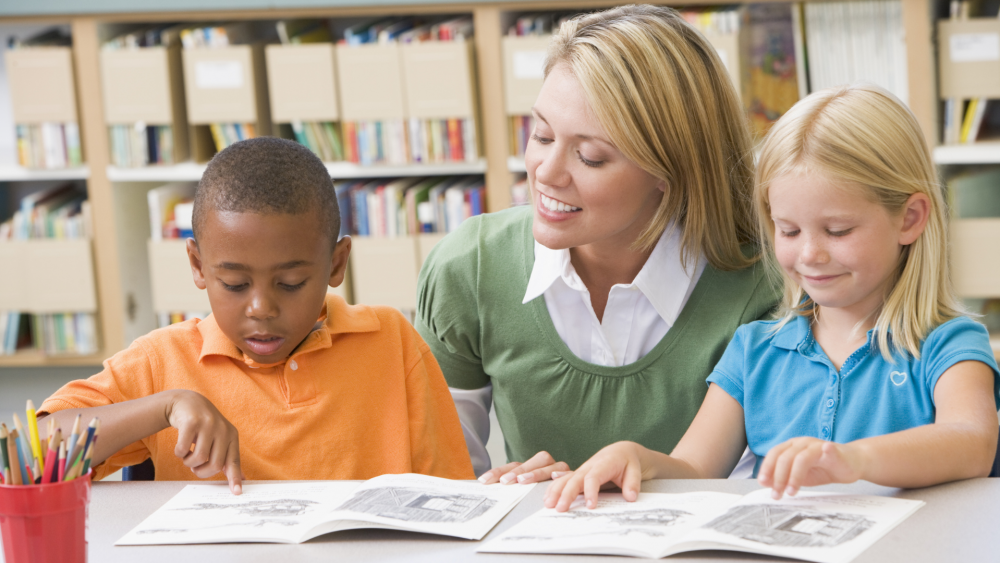What are reading skills?
Reading skills refer to the abilities and competencies necessary for understanding and interpreting written texts. These skills encompass various cognitive processes that allow individuals to effectively decode, comprehend, and analyze written language. They are crucial for acquiring knowledge, accessing information, and engaging with written materials across different contexts.
What are the key components of reading skills?
Decoding
Decoding involves the ability to convert printed letters and words into meaningful language sounds. It is the foundation of reading and entails recognizing and pronouncing words accurately.

The importance of decoding in reading is vital in the improvement of young learners’ reading skills. Image by Canva.
Vocabulary
Vocabulary refers to the words a person knows and understands. Building a strong vocabulary enhances reading comprehension, as it enables individuals to grasp the meaning of words encountered in text.

Vocabulary learning increases children’s reading comprehension levels. Image by Canva.
Comprehension
Comprehension involves understanding the meaning and ideas conveyed by written text. It encompasses the ability to extract information, make inferences, and connect ideas within and across sentences and paragraphs.

A child starting reading at a young age gets better reading comprehension skills. Image by Canva.
Fluency
Fluency relates to the speed, accuracy, and smoothness with which a person reads. Fluent readers can read aloud or silently with ease, allowing for better comprehension and engagement with the material.

Reading fluency of children gets better after their mastery of letter sounds. Image by Canva.
Text Structure and Organization
Understanding the structure and organization of different types of texts, such as narratives, expository texts, or informational articles, helps readers navigate and comprehend them more effectively.

Children’s awareness of the text structures of a language is improved better by their reading habits. Image by Canva.
Critical Thinking
Reading skills also encompass critical thinking abilities, such as evaluating arguments, recognizing biases, and analyzing information for validity and reliability.

Reading habitually trains children to be analytical thinkers. Image by Canva.
Active Reading Strategies
Proficient readers employ various strategies while reading, such as previewing the text, asking questions, making predictions, summarizing information, and monitoring comprehension. These strategies enhance understanding and retention of the material.

A teacher helps children to improve their listening comprehension through active reading. Image by Canva.
Why develop your children’s reading skills at a young age?
Developing strong reading skills is vital for academic success, professional growth, and personal enrichment. Effective reading skills enable individuals to access a wide range of written materials, including books, articles, websites, and other sources of information, thereby empowering them to make informed decisions, engage in critical thinking, and expand their knowledge base.

